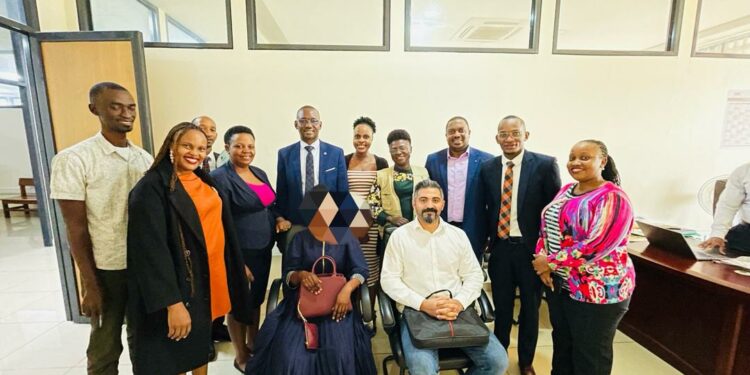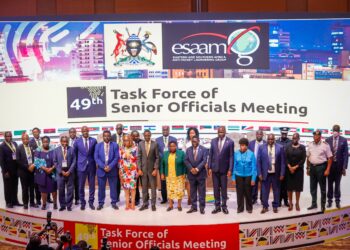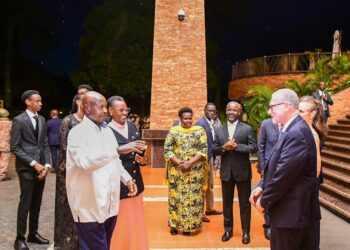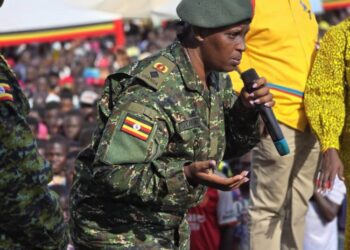In a landmark decision on Thursday 31st October 2024, the Equal Opportunities Commission (EOC) resolved the case of Daphine Kobusingye vs. Summa Construction Company, a Turkish construction, addressing allegations of employment discrimination based on HIV status.
Counsel Gracious Atuhaire from UGANET announced that an amicable settlement was achieved after extensive discussions between the parties involved.
During the hearing before Commissioner from EOC Kakooza Xavier Ntensibe, Atuhaire detailed the negotiations: “We engaged in a series of discussions with the respondent company, which led us to an agreement that prioritizes justice for our client.”
Counsel Atuhaire added, “ This case highlights the need for accountability in employment practices, especially regarding discrimination based on health status.”
The settlement included a memorandum of understanding that specified compensation for the damages Kobusinye suffered due to her unfair termination. “It is essential that victims of discrimination receive both recognition of their suffering and appropriate compensation,” Atuhaire added. “We are pleased to report that the settlement amount was paid immediately after our departure from court.”
Counsel Kamagara Edita from the Alliance for Women Advocating for Change (AWAC) echoed these sentiments, emphasizing the broader implications of the case. “The EOC’s ruling is a significant step toward affirming the rights of individuals who face discrimination,” she stated. “This case not only provides financial restitution to Daphine but also sets a precedent for a safer and more inclusive work environment.”
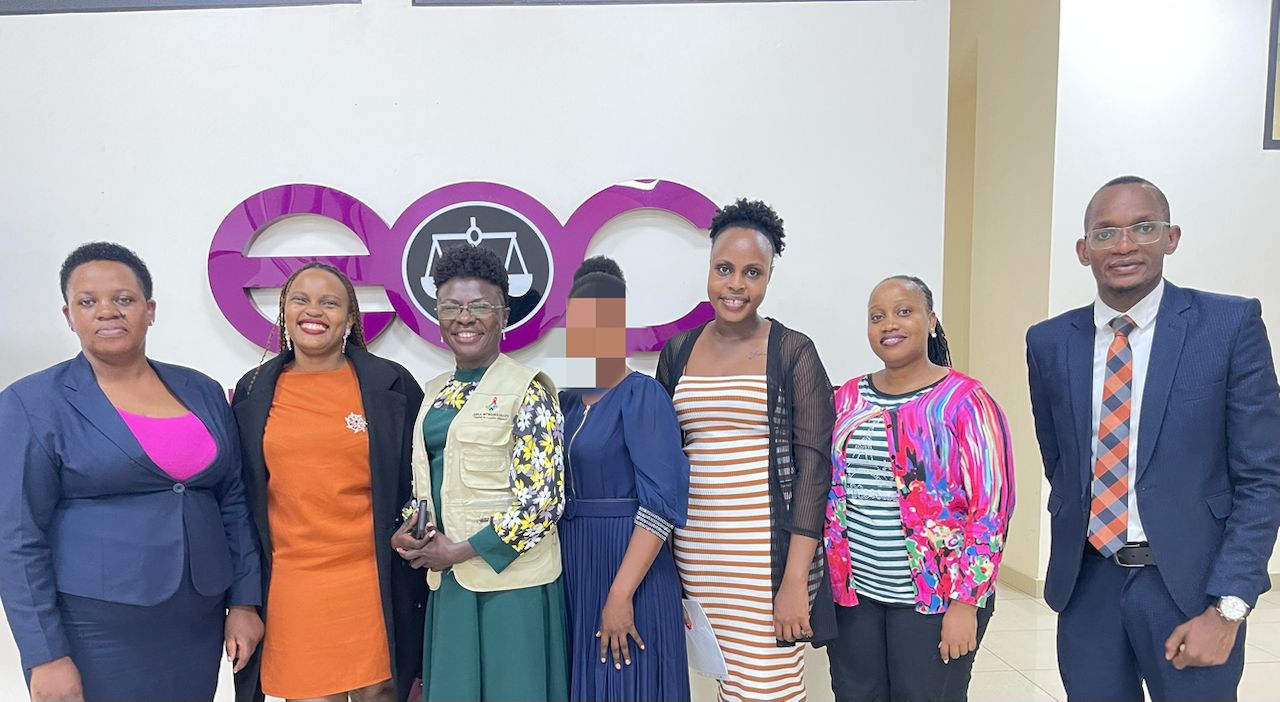
Edita highlighted the EOC’s role under Article 32 of the Ugandan Constitution, which mandates affirmative action for marginalized groups. “Through our collaboration with UGANET, HOPLA NETWORKS, and other civil society organizations, we have reinforced the message that discrimination will not be tolerated in any form,” she said. “Our goal is zero discrimination in the workplace.”
The resolution also included recommendations for Summa Construction to improve its workplace policies to foster inclusivity and prevent future discrimination. “It’s vital that companies take proactive steps to create environments where all employees feel safe and valued,” Edita noted.
The team behind this successful mediation included Gracious Atuhaire, Laura Kyakunzire, Atuhiire Precious, Akankwatsa Brian, Robina Tibakanya (HOPLA), and Edita (AWAC). Together, they emphasized the importance of collective action in promoting workplace equality. “This is not just a victory for Daphine, but for all individuals facing discrimination in Uganda,” Atuhaire
This case marks a pivotal moment in the ongoing fight against discrimination based on health status, showcasing the power of advocacy and mediation in achieving justice.
Case background
Daphine Kobusingye, a 39-year-old single mother of four, took a job as a laundry attendant with Summa, a Turkish company constructing a football stadium in Hoima, Uganda, in August 2024. After just three weeks of work, Daphine felt respected in her role at Mpalo Guest House, where Turkish workers lived. However, her life changed dramatically when she was subjected to discriminatory treatment due to her HIV status.
During a mandatory medical check-up ordered by a Turkish chef, Daphine and her black colleagues faced intrusive questioning about their health. Despite being on PrEP for seven years, Daphine’s HIV status was disclosed to her employer without her consent.
The following day, she was summoned by the Guest House manager, who informed her that she was fired solely because of her HIV-positive status. This dismissal was not only a shock but also a deeply humiliating experience, as the Turkish boss publicly demanded her removal.
In her desperation to keep her job, Daphine pleaded for alternative work options, but her requests were met with anger and rejection. The incident left her feeling dehumanized and stigmatized, as she believed her worth was defined by her health status. After her firing, she experienced intense emotional turmoil, including thoughts of suicide, as she struggled with the fear of not being able to provide for her children.
Seeking help, Daphine visited a health facility where counsellors responded with compassion. They referred her to Robinah Tibakanya, the Hoima District PLHIV Coordinator, who played a crucial role in supporting Daphine through her darkest moments. Robinah’s validation and encouragement helped Daphine regain a sense of hope and agency.
Daphine’s experience illustrates the pervasive stigma faced by people living with HIV, despite ongoing efforts to promote understanding and acceptance. Activists and community leaders, including Robinah, emphasize the need for stronger protections for individuals with HIV. They are organizing to demand justice for Daphine, advocating for better employment practices and the enforcement of existing laws that protect the rights of those living with HIV.
The case highlights broader issues of discrimination within the community, particularly against local workers employed by foreign companies. Experts argue that such discriminatory actions not only harm individuals like Daphine but also discourage others from seeking treatment and disclosing their HIV status.
Legal protections in Uganda, including the HIV and AIDS Prevention & Control Act, of 2014, mandate confidentiality and prohibit discrimination based on HIV status. Despite these laws, Daphine’s experience underscores a significant gap between legal protections and their enforcement in real-world situations.
Do you have a story in your community or an opinion to share with us: Email us at editorial@watchdoguganda.com


